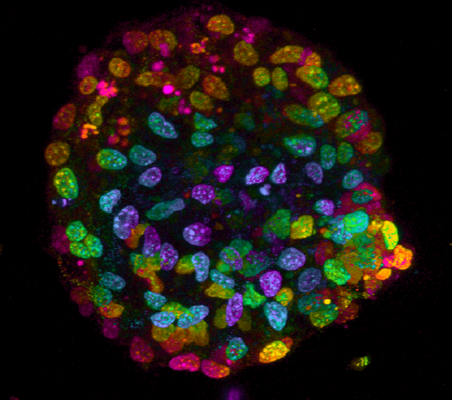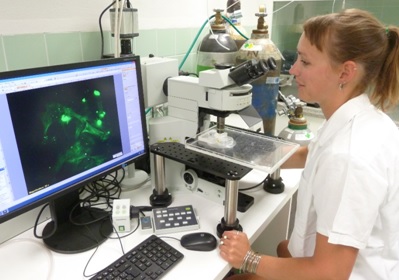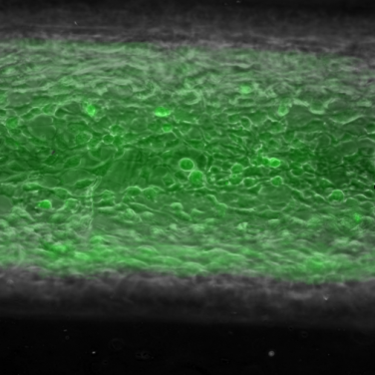MOLECULAR CONTROL
OF IMMUNE RESPONSE
doc. Mgr. Lukáš Kubala, Ph.D.
E-mail: lukas.kubala@fnusa.cz
Key words
Hyaluronic Acid, Thrombolysis, Adenyl Cylases, Microfluidic Systems.
Research focus
- Molecular Control of Immune Response group (MCIR) is focused on the elucidation of molecular mechanisms underlying acute and chronic inflammatory processes and to new therapeutic targets. We investigate the role of hyaluronan in the course of healing and inflammatory processes. That will be used for the development of hyaluronan based pharmaceuticals and biomaterials in collaboration with biotech company Contipro. Secondly, our objective is to develop fluidic models to study the relationship between blood flow and vascular inflammation and vessel recanalization during ischemic stroke. The third, objective is to evaluate the biological importance of different isoforms of adenylyl cyclases in collaboration with the Medicinal chemistry research group.
- Herz- und Diabeteszentrum NRW, Ruhr-Universität Bochum, Bad Oeynhausen, Germany.
- BioMEMS Resource Center, Harvard Medical School, USA.
- Contipro a.s., Dolní Dobrouč, Czech Republic
- Testing anti-inflammatory drugs in in vitro models and evaluation of their efficiency in a variety of preclinical animal models.
- Studies employing endothelial cell seeded microfluidic systems that mimic microvascular systems.
- Testing biocompatibility and regenerative potential of new materials and compounds in vitro and in vivo.
Main goals
- Identification of molecular mechanisms responsible for the development of endothelial dysfunction and tissue damage under conditions of acute and chronic inflammation including ischemic insults.
- Development of new anti-inflammatory drugs targeting cAMP signalling pathways, particularly specific isoforms of adenyl cyclases.
- Identification of the regulatory role of phagocytes and their newly defined subpopulations in the course of acute and chronic inflammation.
Technological equipment
- Microfluidic systems for mimicking vasculature in vitro.
- High throughput screens for determination of modulation of a specific isoform of adenylate cyclase activity.
- Set of instruments for the determination of production of various reactive oxygen species, nitric oxide, and antioxidative capacity in various biological samples.




